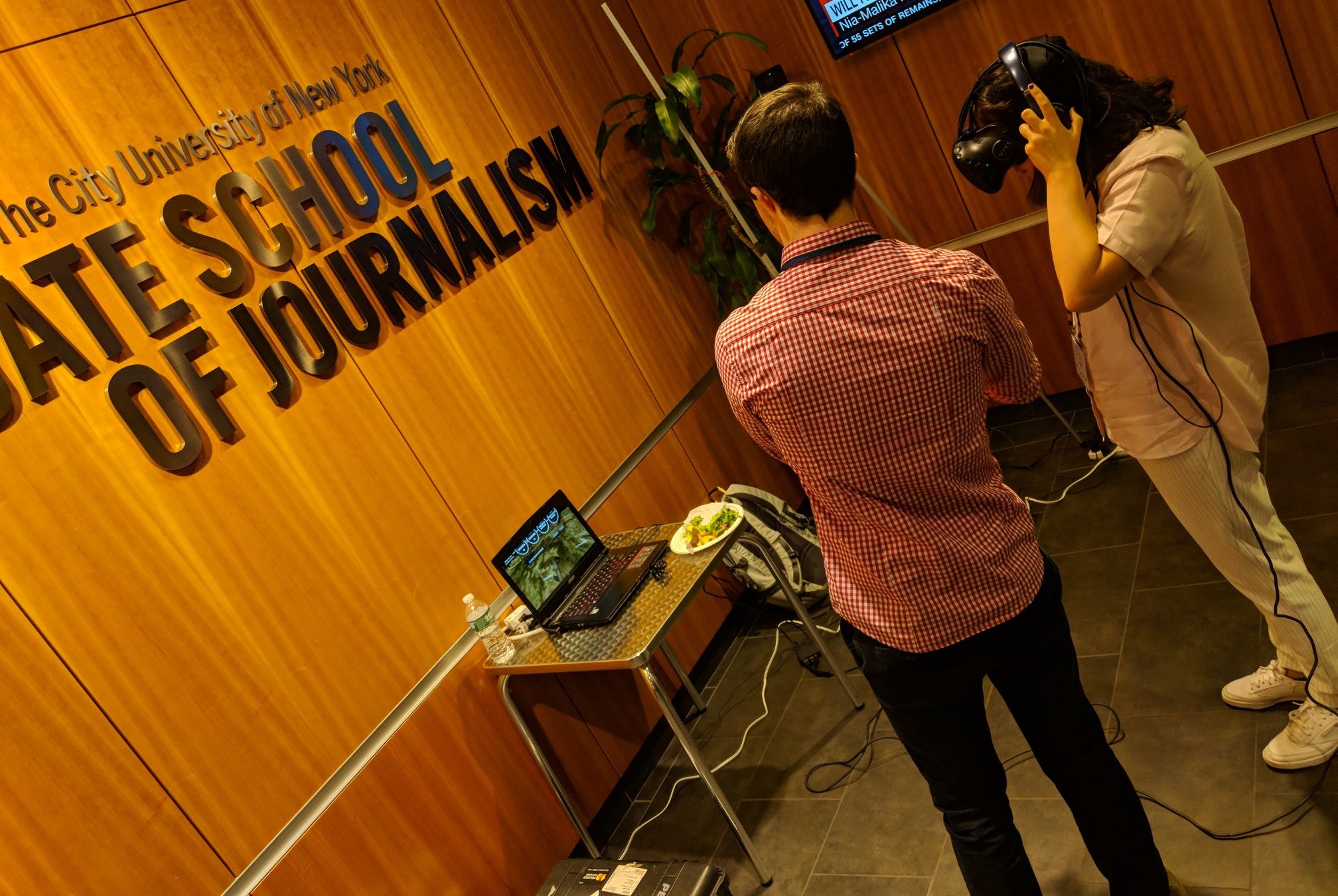Nearly 200 immersive storytelling experts and enthusiasts gathered in New York City on July 25 for the inaugural Journalism 360 Unconference, hosted at the CUNY Graduate School of Journalism. It’s the only event focused on the intersection of immersive storytelling and newsroom practices, including but not limited to innovative uses of 360 video and virtual, augmented and mixed reality.
The day featured wide-ranging conversations covering everything from ethics and funding to workflow tips and audience engagement. Here are just a few of the ideas and questions that bubbled up.
Community is critical
From the opening remarks to the closing round of asks and offers, one theme that the group kept returning to was building and nurturing a community of people excited to push innovation in immersive news.
Immersive journalism is such a nascent and experimental field that it can feel daunting to jump in. There are so many questions — what equipment to use, ethical implications, how to build a team, why a story would be better in an immersive format to begin with and so on. Storytellers and newsroom leaders need a place where they can share, experiment, learn and even commiserate.
Erica Anderson, U.S. Partnerships Lead for Google News Initiative, kicked off the day by reflecting on how Journalism 360 got started, and summarized it with one key question: How can we identify people who will develop ideas that will benefit the entire industry?
Journalism 360 is just over a year old. The community is tight-knit and highly engaged. It’s exactly what the industry needs, so the question is now: How might we do more together?
Pursue creative partnerships to build skills and to start experimenting
Another question on everyone’s minds: How do you get started when you don’t have the resources of large newsrooms like the BBC or The Washington Post?
Shifting from camera to camera and experimenting with new technology before you know what will stick can get expensive. It’s not always clear how to make the case for newsrooms — especially smaller, resource-strapped ones — to invest in experimental formats.
Zillah Watson, the BBC’s Commissioning Editor for Virtual Reality , and Jeremy Gilbert, Director of Strategic Initiatives at the Washington Post, shared leads for creative resource-building and partnerships during the keynote conversation on the “State of the Union” for immersive journalism.
Their suggestions included looking to the news group that your organization belongs to (“The Wall” was a collaboration between Arizona Republic and the USA TODAY NETWORK); partnering with universities (see the JOVRNALISM project based at USC Annenberg) and looking beyond news for inspiration and tips to build skills with cheaper tools. They both cited the value in looking at projects from the entertainment and video game industries to help understand how to build compelling immersive stories.
We need to talk about onboarding
One of the Table Talk sessions explored increasing access to immersive content, and the topic echoed in a few of the takeaways that attendees shared at the end of the day.
While there are many questions on the accessibility front, there’s consensus that the community needs to develop best practices for guiding the audience through their first experiences with immersive news.
Considerations include terminology and language, UX design and how the sensory experience affect different bodies differently. There were also questions about the connection between immersive news and trust in news — how can immersive storytelling help build and rebuild trust in the journalism?
Take-home resources
As Robert Hernandez put it, “We’re all in this together.”
In the spirit of sharing and learning together, we’ve collected stories, notes and other resources shared at the unconference in one place: Journalism 360 Unconference resources.

